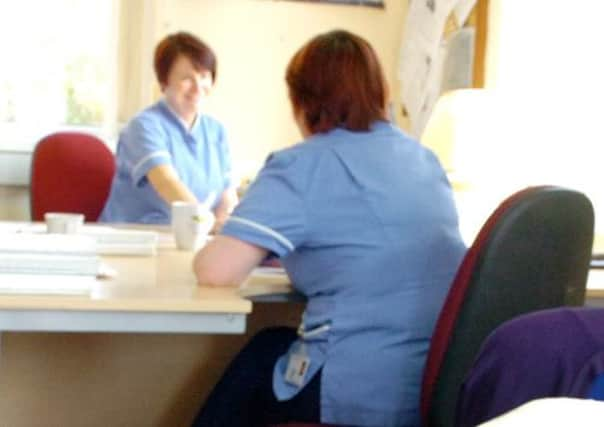Nick Summerton: The NHS is not about bricks and mortar; it’s about putting the patients’ needs first


He had visited me shortly before his departure, but I had not considered that the single episode of bleeding he had noticed represented anything more sinister than piles. I had clearly got it badly wrong.
Whenever it is suggested that hospitals should close, they suddenly seem particularly precious to politicians and the general public. The irony is that we, as patients, want to avoid them wherever possible.
Advertisement
Hide AdAdvertisement
Hide AdYet another report has now suggested that we have too many hospitals and that more care needs to be delivered in the community. My former patient, however, who had been admitted as an emergency, was not looking for an alternative in terms of “care in the community”. What he had clearly expected was that I should have had the ability to assess his risk of cancer in the first place.
The changing nature of healthcare means there is undoubtedly a need for hospital re-configurations and closures. Small units simply don’t have the capacity or capability to deliver every possible service safely and with consistently good outcomes for patients. But the challenge has always been how best to make adjustments without losing patient trust or piling further pressure onto the increasingly tight NHS budget.
Simply suggesting that we move more care out of hospitals has not worked before and I don’t see why it should be any more successful this time. Even if alternative services are established in the community – such as tele-medicine or specific clinics – it frequently proves impossible to subsequently extract any resources from the local hospital.
Last week I visited Jersey and found there is a lot that can be learned from the way health and healthcare organisation is being looked at there. Its health department obviously recognises that it is not possible to deliver every clinical service within the hospital at St Hellier so a variety of alternative approaches are being explored.
Advertisement
Hide AdAdvertisement
Hide AdOne of their most interesting innovations is to deliver enhanced screening services for conditions such as bowel cancer. Patients with this disease fare much better (and without the need for such extensive and expensive treatments) if the tumour (or the polyp that may proceed it) is picked up at the earliest possible stage. In contrast to the situation in England, every Jersey resident aged 60 is now being offered an examination to look at the bowel wall directly. Since January, 100 people have been screened and 16 of them have had pre-cancerous polyps removed.
Within the NHS in England, I would argue that any change needs to be looked at in a similar way, with a much greater focus on the patient as opposed to any particular setting – be it hospital or in the community.
More specifically, getting things right at the start of the patient’s journey is key, along with spending more time with them. Hurried encounters between a patient and their GP are the root of many problems, with adverse impacts on both patient outcomes and the healthcare budget.
Twenty-five years on from my unfortunate encounter with the patient whose holiday to Canada was interrupted by bowel surgery, I believe that rather focusing on hospitals we should ensure that every patient has a personalised health plan, developed from an extended consultation with an experienced general practitioner.
Advertisement
Hide AdAdvertisement
Hide AdThe focus of this one-stop assessment would be on the individual’s particular healthcare concerns, combined with a more structured review of their health risks, personal values and continuing health problems.
This tailor-made health plan would facilitate health risk reduction, such as by targeting screening for cancer, cancer recurrence, cardiovascular disease, diabetes and osteoporosis, as well as the ongoing management of continuing health problems.
In relation to the care of patients with long-term conditions, including residents in care homes, the health plan would provide a more holistic approach by acknowledging that such individuals often have more than one chronic condition. It would also recognise the importance of considering both their physical and psychological well-being.
Such a patient-centred approach, combined with open competition between providers would, in my view, encourage the NHS to start addressing the real healthcare requirements of individuals rather than simply expecting patients to take what is offered by its various institutions, irrespective of need or quality.
Advertisement
Hide AdAdvertisement
Hide AdWhere I practise I have excellent access to some services that most of my patients don’t want – such as tongue tie surgery – but extremely poor access to services they do such as cognitive behaviour therapy or psychiatry. Rather than simply focusing on bricks and mortar, this is what really needs to be addressed.